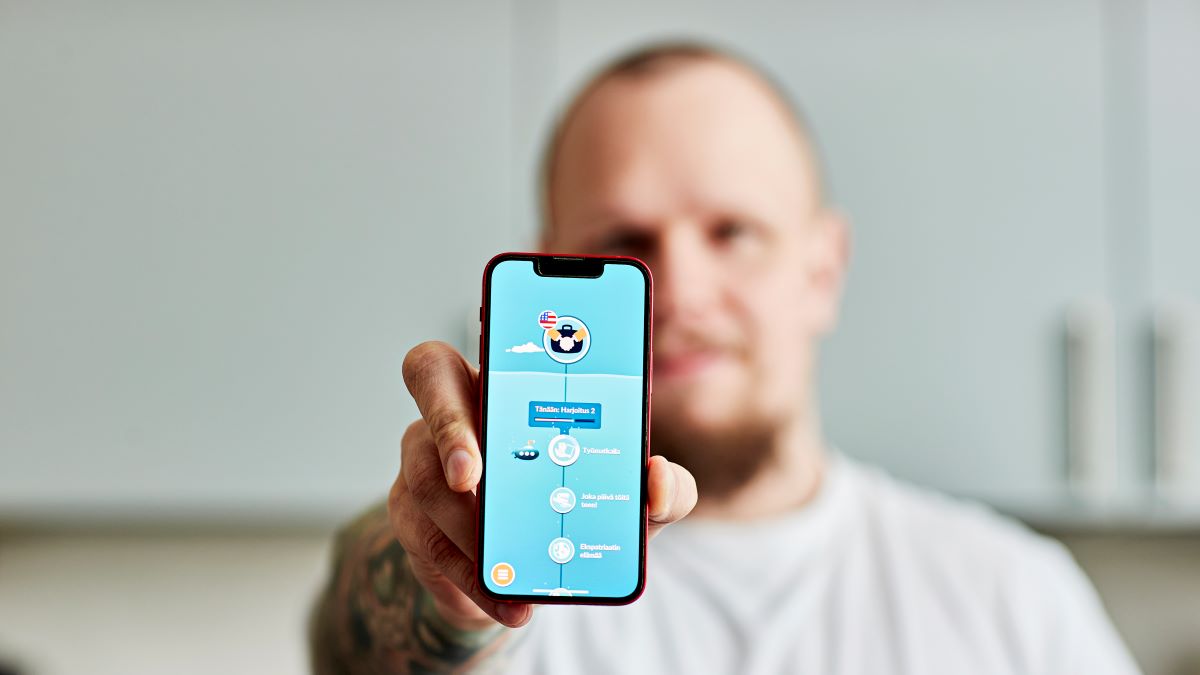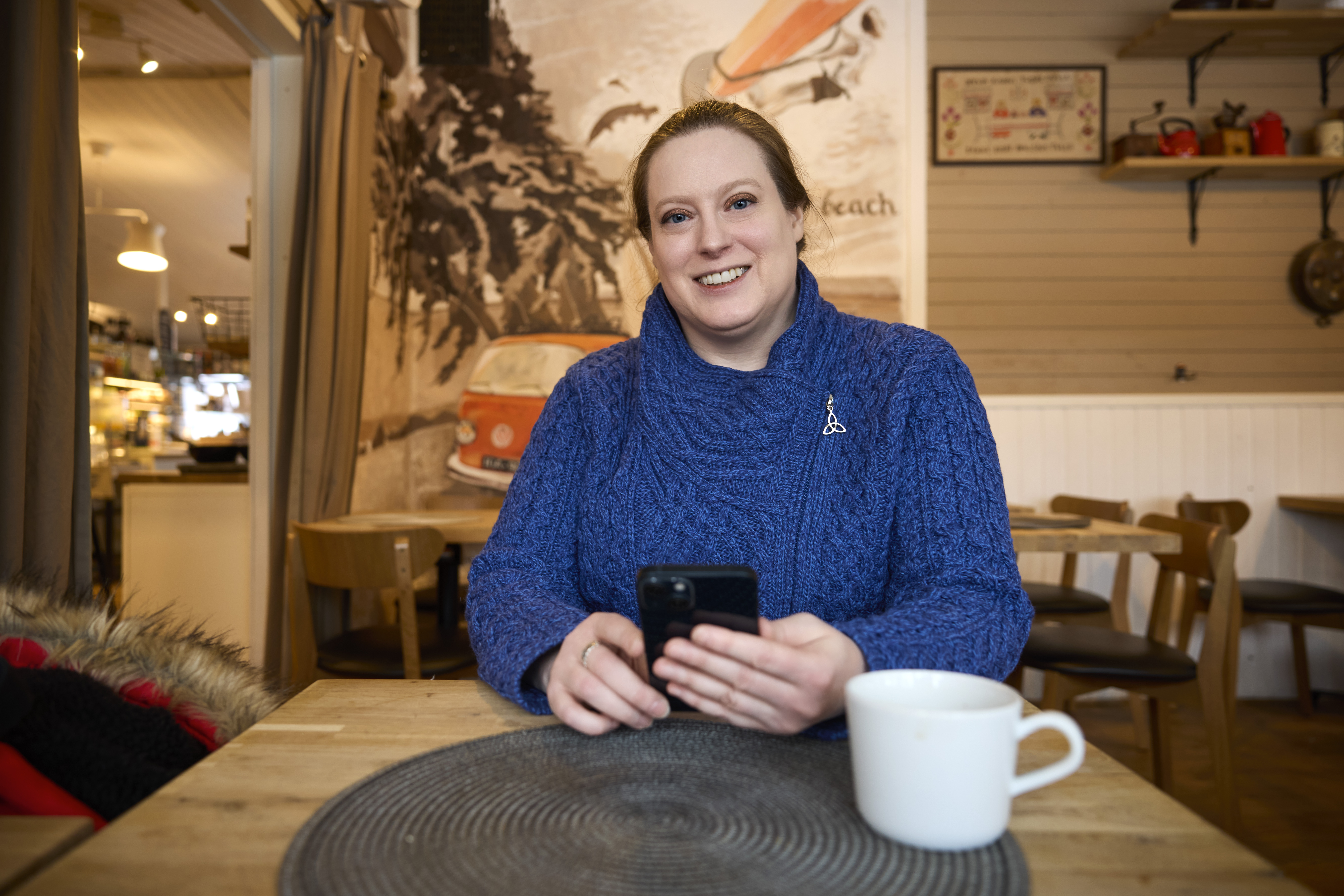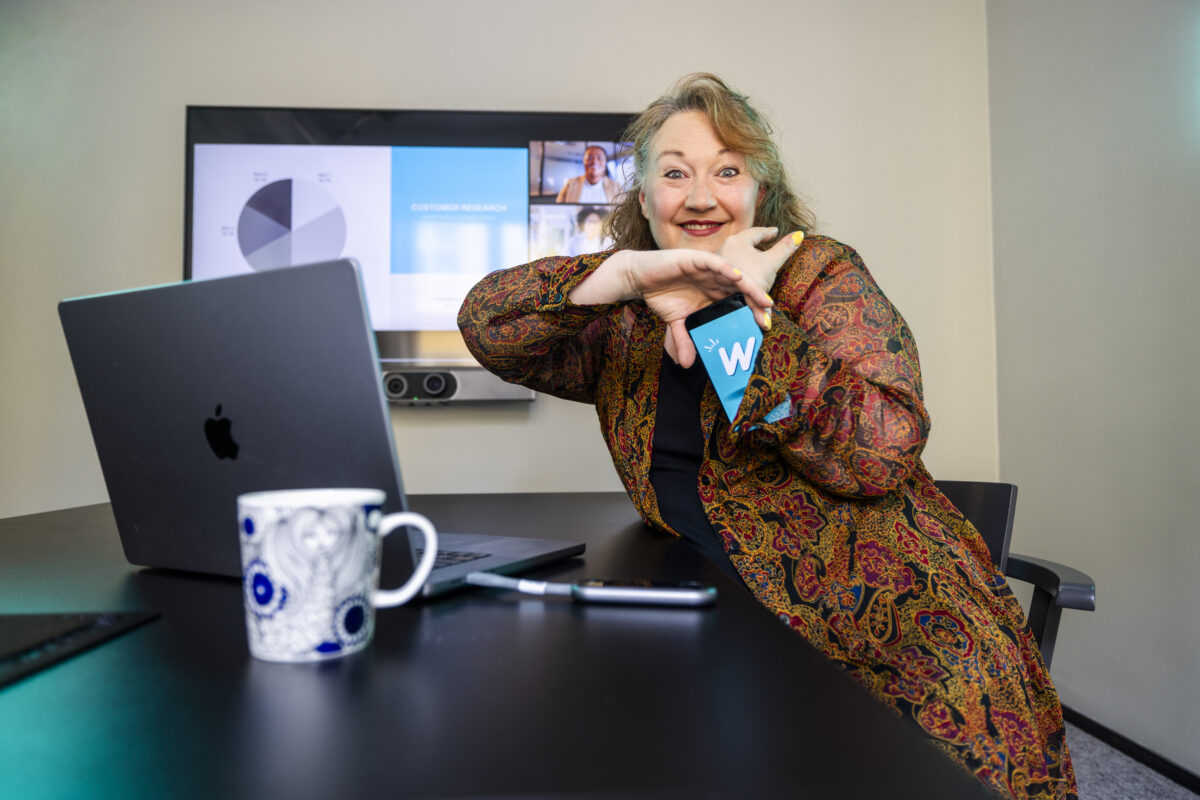
Sami Kiias, aged 34, smiles when asked what made him subscribe to an online English language course as an adult professional who is pursuing a new career by studying marketing.
Having been an entrepreneur for the last 10 years, Kiias provides examples of situations in which the otherwise talkative man has become quiet.
“It’s been a while since I studied languages. I can’t seem to find the right words in unexpected situations; my mind goes blank and I can’t say anything, despite knowing English grammar and even the correct pronunciation like the back of my hand,” says Kiias.
Kiias says that online translators help him with written professional communication, but similar tools do not exist for speaking the language.
“I studied languages in comprehensive school, yes, but that was a while ago. Back then, we were not encouraged to speak the language and that was not a priority.”
Learning a new language in three month
In the autumn, when he was less busy with school work, Kiias subscribed to a WordDive English language course. He felt that independent online learning was the right choice for him, as he would have found it difficult to fit lessons held at a specific time and place in his schedule, which already includes full-time study and entrepreneurship.
The WordDive language course allows him to practise the language on his phone or on a computer no matter where he is. At first, Kiias did the exercises daily, and then less frequently, but still at least once a week. The last time Kiias worked on his English exercises was yesterday.
“I downloaded the WordDive app on my phone. I tend to open it more often than the browser version on the computer, and use it instead of browsing social media,” says Kiias.

He finds the app especially convenient for brief practice sessions. The exercises automatically continue from where he left off the last time.
According to WordDive’s customer proposition, you can learn a new language in three months, which means studying at a pace of about five hours per week. Kiias is a realist and knows that success depends entirely on how much effort he is willing to put in. He does not have the time to practise regularly for one hour per day, so he is completing his language studies at his own, relaxed pace.
The learning path of the course has been easy for Kiias to follow, and he has not had to worry about whether he is learning all the right things. The learning algorithm of the software tailors the exercises and the repetitions for the learner so that learned knowledge moves from your working memory to your long-term memory to ensure permanent learning.
Kiias is especially pleased with the Finnish user interface of WordDive, which he feels makes his learning more effective, because he does not have to waste his time or energy trying to understand the exercises.
Kiias believes that his vocabulary has expanded as a result of the exercises and the things he learned back in comprehensive school have come back to him. You can hear the smile in his voice when he explains how, just last week, he managed to express all his thoughts out loud to an English-speaking customer for the first time.
The joy of success felt good, and he felt less nervous about the meeting and the conversation as before.
“I’ve always been able to read fluently in English, and also write it to some extent. It was great to see that, thanks to my studies, I was now able to carry out a conversation easily!”

Studying has been so much fun that you want more
The WordDive online course contains separate sections for different everyday situations. Kiias has focused on professional American English and plans to continue studying and completing all the sections to prepare for future trips abroad, for example, so that asking for directions in an airport, checking in to a hotel and going to a restaurant would feel more natural.
“My last trip was the first one where I was the person who spoke English the best in my group, and that did make me nervous,” says Kiias.
He goes on to describe a situation several years ago when an English friend of his relative stayed with him for three weeks. Having a conversation was impossible while holding a mobile phone and trying to use an online dictionary, and there were many moments of silence in the small apartment. Looking back at the situation, he can now smile, but back then it was not funny at all.
Kiias has noticed that he finds it easier to use English with, say, Swedish and French people than with native speakers, because the language is foreign for both parties in the conversation. The simplified speech of the other person is easier to understand than the word choices and sentence structures of native speakers, and your own faltering attempts to speak or work around gaps do not feel as embarrassing.
In terms of future situations at work, Kiias feels that a colleague who speaks better English can cause pressure and make you feel less confident about speaking in situations where several Finns are taking part in the same meeting.
“Comparing yourself to others causes anxiety. The thought of embarrassing “Rally English” is deeply embedded in our consciousness,” says Kiias with a laugh.
The online courses of WordDive allow you to choose from several different durations or an opt for an ongoing subscription with monthly invoicing. According to Kiias, continuous learning helps him ensure that his skills will not become rusty.
“When you continue to use the language and remember the things you have learned, it is easier to dive into different situations and enjoy speaking more,” says Kiias, summing up his thoughts.
Photos in the article: Mikko Hannula
The article was originally published at is.fi on 14 February 2024.










